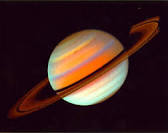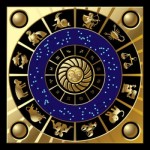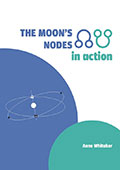Saturn is settling down for his journey through the exuberant, joyful sign of Sagittarius for the next two years or so. Mars is currently conjunct Jupiter in Virgo (in my First House) as I reflect on the importance of Jupiter’s natural, spontaneous exuberance being modified and curbed by Saturn’s practicality and realism if we want to generate anything lasting in our lives. This reflection has made me think of the importance of retaining the capacity for simple joy, as Life tosses its inevitable challenges our way.
In honouring both Jupiter and Saturn, then, let us first celebrate the spontaneous, resilient, Joyful Child within all of us, explore how it fares as we mature. If we are lucky, this part manages to survive the batterings, brutalities and tragedies of existence, continuing to provide inspiration and faith that life is worth living.
Who, exactly, is this Child? The basic stuff of which s/he is made is the element of fire, that which the gods prized so much they wanted to keep to themselves. But Prometheus stole some, hidden in a fennel stalk, and gave it to us. He was savagely punished for his misdemeanour – but ever since, we humans have had at least one chip of that magical, divine substance lodged in us. Everyone has some, some people have too little, others have too much.
What is it? It’s the spark of divine light, that which tells us we are special and immortal, that we’re here for a reason, that our lives have a purpose, that we have a future worth seeking out. It fuels wonder, injects the passion of inquiry into mere curiosity, causes learning and exploration to be a joyful end in themselves. It gives the capacity to look out at the world with a fresh set of eyes, take pleasure at what’s there because it’s new, exciting. It brings spontaneity and the gift of laughter. It fuels play, which is at the core of a response to life which is fundamentally creative and imaginative.
It is highly protective and supportive of life, especially when the going is rough, giving the hope that things will get better. It enables tough times to be survived through the unquenchable belief that suffering may be awful, and protracted – but it means something; it is not just the random brutality of quixotic gods, or fate.It brings the capacity in extremis to laugh at the sheer absurdity of life, and oneself – a capacity which can drag one out from under the worst of times for just long enough to reaffirm that life, despite everything, is worth living.
The precious creature formed from such magical substance never grows up in the sense of assuming worldly responsibilities, and never gives up on life’s possibilities and delights. It cannot be ordered forth – just appears, then disappears : will o’the wisp. Readers will recognise the Sagittarius/Gemini polarity here!
Leaving the Otherworld
The advance through adulthood as the Saturn seven-year cycle unfolds, alters one’s perception of what it is to be young. Having been scarred by life as we all are, watching a pre-school child absorbed in play is delightful, but also poignant. Delightful because it demonstrates clearly that there is another world than the one we usually inhabit which is full of Saturn’s deadlines, duties and demands.
This Otherworld is full of goblins and fire engines, magic bubbles and imaginary friends, bright green tigers who speak, and amenable adults happy to give you the keys to the scary castle, where you can spend days of adventure without anyone telling you that it’s impossible for giants to keep a special pocket full of ice cream that never melts, just waiting for you to come and eat it.
It’s poignant because we wonder, looking at this absorbed child, how s/he will cope with an adult world whose entry tariff is extracted from the struggle between the fantasy world of childhood where anything is possible, and the reality testing which takes place as we grow and confront the limits which life sets for us.
The seven-year stages of the Saturn cycle offer a helpful containing context within which to explore how the Joyful Child within us fares as life’s journey unfolds. There is a case to be made for not starting children at school until the first square of the cycle. Five or six, the common age, seems too early to remove children from the Otherworld of play and unbounded imagination. Shakespeare vividly expressed the average child’s response to being dragged from the Otherworld :
“And then the whining schoolboy, with his satchel,
And shining morning face, creeping like a snail
Unwillingly to school.” (i)
If we did start children at the later age of seven or eight, socially disruptive though that would be in many ways, perhaps it would give more time for the Joyful Child’s domain to become established. Thus it might be easier for the growing person to retain contact with the Otherworld as a source of inspiration throughout life.
Essentially what happens from the time of starting school through to the first Saturn square, as we step across the boundary of family, is that the Joyful Child begins to hide, its energy becoming redirected, as we become more aware of ourselves in relation to what the outer world expects. By and large, that outer world is more interested in us being able to tie our shoelaces, read, tell the time, and be truthful, than it is in knowing what a wonderful chat we had in Chinese last night with the bright green tiger who sleeps under our bed.
Early adulthood
The first Saturn opposition at 14/ 15 is the point where we take bigger steps out of family, begin to challenge parental authority, and move towards greater identification with the peer group.The need to play and daydream which is fundamental to the Joyful Child’s world, and the creative energy fuelling these activities, gets sublimated further at this point. It channels into the pursuit of achievement of an academic or vocational nature, and exploration of the exciting, troubling world of relationship and emerging sexuality as bodily changes propel the young person towards physical adulthood.
The Joyful Child’s impetus towards discovery and exploration of the new, engages in a complex dance with the tough Saturnian realities also emerging.Too much time spent playing, not enough on taking responsibility, can have a high emotional cost, eg exam failure or unwanted pregnancy.
The waning square at 21/2 brings with it the world’s expectation that we should begin to assume adult responsibility, get a job if we’ve been studying for years, get serious. Many people marry or enter into long-term partnerships at this stage, perhaps out of unconscious fear of facing the adult world and its responsibilities alone. I have gained the impression from my varied professional work with people of differing ages over a long period of time, that part of the vulnerability of this life stage comes from a realisation that childhood is, indeed, over.
Recently I came across a scrapbook of newspaper cuttings from a column I wrote in my early twenties. In it was a piece called “Thoughts on Childhood” which supports the view just expressed :
“ I am close enough to childhood for my memories still to be clear and reasonably untainted by the rosy hues of nostalgia, although I realise now that as soon as we have ceased to be children, the world of childhood becomes a closed world to us, one which we can never recapture except through flashes of memory and watching our own children grow up. As adults, no matter how hard we wish to recapture the feeling of childhood, we must always remain ‘ watchers by the threshold.’ ” (ii)
This is a critical age, in terms of the emerging individual’s capacity to retain that spark of vital creative energy which ensures that engaging with the world as it is does not mean stifling the Joyful Child, who has been curbed by now, and knows that much of the time it’s not safe to be too overt. But it is important that the re-channelled energy continues to flow.
It can express itself in passionate commitment to a career, as opposed to working purely to provide life’s necessities. It can manifest through joy in good friends, or absorbing hobbies and interests outwith work.For some people, early parenthood brings, along with responsibility, the opportunity to view the world again through the eyes of their growing children.
There is also a direct route for expression through the sheer animal vitality of youth, which all by itself can make life feel worth living. I recall a middle-aged male friend of mine’s recent comment on seeing a young man running effortlessly up several flights of stairs recently, not because he had to, just because he could. “ I can’t do that any more – my back’s too bad !” remarked my friend. “It made me feel wistful, reminded me of the youthful grace and energy which I once had.”
Point of entry
From the Saturn return at 28-30 onwards, the major underlying task changes: from discovering the overall shape of who you are in relation to your own life, to beginning to use the platform you have built as support in offering your unique contribution to the wider world. By this stage, the balance achieved between necessary realism and the joyous, inspirational, creative aspects of life is crucial to how the next 14/15 years unfold. The poet Dylan Thomas senses and honours the presence of the child he was, in his marvellous “ Poem in October” written on his thirtieth birthday:
“ And I saw in the turning so clearly a child’s forgotten mornings……where a boy…..whispered the truth of his joy
To the trees and the stones and the fish in the tide.”
In the poem’s last verse, he writes
“And the true
Joy of the long dead child sang burning
In the sun.” (iii)
For Dylan Thomas, as for many poets and even more of us ordinary citizens, being in nature can powerfully evoke that within us which never ages, which rejoices in being alive, and is powerfully connected to the endless cycle of birth, maturation, decline, death and return.
The thirties and forties are decades where a major challenge lies in the grinding process of reality testing our hopes, wishes, dreams and ambitions against the world as it is. Most of us eventually get to the Saturn opposition of the mid-forties: we are still here, we may still be functioning tolerably well, but we’re not young any more.
Midlife
From the mid-forties on, we only have to look in the mirror, or realise that our idea of a good Friday night is increasingly of going to bed early, not with a hot lover, but with a good book, to be aware of the relentless advance of mortality. It becomes harder at this stage for most people to keep in touch with the Joyful Child, keep its energies flowing. For many people, brutalities of an environmental, political, social or personal nature have borne down so hard that the vital spark of life borne by the Joyful Child can now fuel only the dogged survival instinct.
I have found that one of the compensations of middle age is deeply paradoxical, and was first alerted to it a number of years ago by a comment made by my late mother-in-law, then approaching eighty.The way she dealt with an old age full of physical infirmity was inspiring. She had a lively sense of fun and humour, maintained great interest in the wider world as well as that of her own family and friends, and kept up a prodigious correspondence right up to the end of her life. The Joyful Child in her was alive right to the end, sustained in her case by a strong, ecumenical religious faith.
“ You know”, she said,“occasionally when I’m not thinking about anything in particular, I catch sight of my face in the mirror and get an awful shock. I see an old woman’s face looking out at me – but inside I don’t feel old at all – I feel just the same as I did when I was young.”
The paradox is this.The body ages to the point where you are faced with increasing physical evidence of the passage of time; but an opportunity can also slowly arise to perceive, with a clarity not possible in youth, that this ageing body has been carrying something else through life which is different, ageless, woven with the physical – that spark of immortality which comes in sometime before birth, flying free at physical death. Thus, as mortality’s approach via Saturn becomes more and more difficult to ignore, a major compensation can be offered via Jupiter: by that which is clearly immortal becoming more and more evident by contrast.
In this way, the great archetypes symbolised by astrological Jupiter and Saturn can achieve balance as ordinary human life reaches its conclusion.
_________________
Endnotes:
(i) “As You Like It ”: (1599) act 2, sc 7, l 139, The Oxford Dictionary of Quotations, 1999 Edition, p 658, par 26
(ii) “Thoughts on Childhood” from Personally Speaking column, Stornoway Gazette, September 1970
(iii) “ Poem in October “ from Dylan Thomas Collected Poems 1934-52, Aldine Press, 1972 Edition, pp 96-7
_________________
2,200 words copyright Anne Whitaker 2015
Licensed under Creative Commons – for conditions see Home Page of Writing from the Twelfth House
























































Very insightful as usual, Anne!! Thank you.
LikeLike
Thanks for dropping by and for your affirming comment, Sag Mind.I’m now off to check out what you have to say on Saturn in Sagittarius!
LikeLike
Wonderful thoughts Anne, I especially love the idea that something forever youthful is within and freed once more at the end of life. The idea reflects the whole principle of cycles so well. Having Jupiter in Sadge and Saturn in Capricorn I always seem to find myself agreeing with both which has sometimes felt confusing. Maybe it really IS a good thing, as after reading your post, it all made perfect sense to me.
LikeLike
Always happy to contribute to a bit more perfect sense in your world, Carole! And many thanks for this affirming comment – much appreciated.
LikeLike
Yes, a paradox – to me as a natal double Sagittarius it seems that the transiting Saturn supports me to plan my expansion, my fun, my play and to be serious about my “childish” needs – to balance the hardness he brings in my life. Serious about work and accomplishment, and serious about having the well deserved break, both in balance. A new challenge!
LikeLike
Many thanks, EP, for this illustrative feedback. Getting Jupiter and Saturn in reasonable balance leads to the ability to grow and develop, but in a measured, enduring way…so the restraining Saturn effect on a double Sagittarius should be more constructive than frustrating!
LikeLike
As a Sagittarius with Gemini rising, I can certainly relate to this post. Very interesting one, Anne. Having grandchildren helps to keep “the child” in me active, and of course, my writing keeps the juices of imagination flowing.
LikeLike
Glad you liked it, Bev! And I heartily endorse the two examples you give of how you keep the Joyous Child alive. I really enjoy being a gran to our lively and fun four year old Lola – and writing! Well, who needs to explain the joyous dimension of that?!!
LikeLike
In my draft files, I have a post titled “First Grade, Forever.” When I get around to finishing it, many of the points you make here already are there in outline: particularly the importance of curiosity and pleasure in learning, and in maintaining a joyful sense of life.
I especially enjoyed your comment about injecting the passion of inquiry into mere curiosity. That’s such an interesting thought, and it occurs to me I’ve never heard that point made. There is idle curiosity, but I’ve never thought about passionate curiosity. Important!
LikeLike
I look forward to reading that post, Linda, and am pleased that we share several important views and values. Mind you, I think I know that already!
LikeLike
Reblogged this on Jude's Threshold and commented:
Well done and comprehensive!
LikeLike
Many thanks, Jude! Much appreciated, and glad you liked the article.
LikeLike
Interesting to see how Saturn matures us through these stages. For me, Saturn currently feels very harsh as I struggle to discard what’s not working and try to tap into Jupiter’s blessings. Honestly, at this point I feel pretty disillusioned. It will be interesting to see how the next two years unfold.
LikeLike
Hi Ellis, many thanks for dropping by and for commenting. Yes, Saturn/Neptune aspects are not the easiest, especially for fairly driven types like you and me! If it’s any comfort, I am feeling unusually passive and rather listless these days, and am easing myself back into meditation practice as one way of utilising the combination constructively. I have decided to have a fairly ‘drifty’ year, not expecting too much of myself and trying to live in the present as much as possible…
LikeLike
Yes, meditation is important. I even was able to get a few sessions in while traveling. I think the next few years will be demanding. Saturn in the First House with Jupiter moving from 9th to 10th. I really have a sense of now or never.
LikeLike
Reblogged this on Lost Dudeist Astrology.
LikeLike
Many thanks for the reblog!
LikeLiked by 1 person
Nice piece on Saturn. Look forward to reading more of your work.
LikeLike
Glad you like it, Grandtrines. Enjoy the browse. I am now Following your interesting site and will drop by for a read when I get a bit of free time later this week. Good to have made the connection…really appreciate the re-blogs!
LikeLiked by 1 person
Pingback: #Saturn in #Sagittarius: the Joyful Child grows up | Ola Queen Bee of Astrology